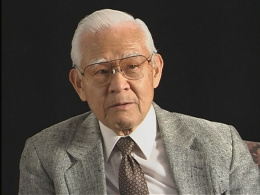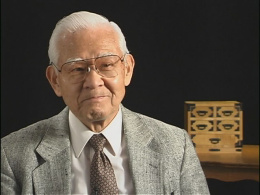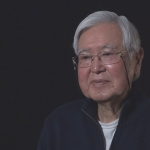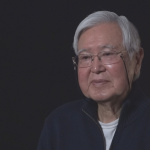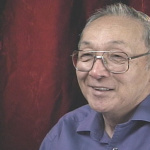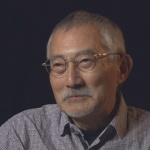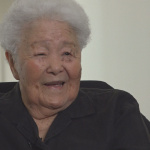Paul M. Nagano
| Name | Paul M. Nagano |
|---|---|
| Born | June 17 1920 |
| Birth Location | Los Angeles, CA |
| Generational Identifier |
An influential religious figure in the Japanese American community, Paul M. Nagano (1920– ) served as a pastor in Poston III and minister in the Military Intelligence Service Language School at Camp Savage and Fort Snelling. He restarted the first Japanese American Christian church in Los Angeles at the end of World War II, and founded the Japanese Evangelical Missions Society, the Asian American Caucus of American Baptist Churches, and the Council for Pacific Asian Theology. Nagano was a pastor, seminary professor, and chaplain on the West Coast. He and his wife, Florence, were honored as "Community Pioneers" for their lifetime of service to the Japanese American community at the 2011 Nisei Week Festival in Los Angeles.
Background and Early Ministry Experience
Nagano was born and raised in Boyle Heights, Los Angeles. His grandparents, Manzo "Jack" and Tsuya Nagano, were the first Japanese immigrants to settle in Canada in May 1877. His Canadian born father, George Tatsuo, and Japanese born mother, Seki Uchiki Nagano, immigrated from Victoria, British Columbia, to the United States in 1915. Nagano received his Ph.D. in 1970 from the Claremont School of Theology and was awarded an honorary doctorate from Chapman University in 2012 where he had earned his Bachelor's Degree.
At the outbreak of the war, Nagano was finishing his last year of college at Chapman University in Southern California when he and his family were relocated to Poston, Arizona. Here Nagano was assigned by the Ecumenical Ministerial Council to serve as one of the first English speaking Japanese American pastors in the camps. His primary responsibility was to oversee the newly formed English speaking Nisei worship services in Poston I and III. Despite his station as a college student who lacked ministry experience and seminary training, Dr. Ralph L. Mayberry, executive director of the Los Angeles Baptist City Mission Society, urged that Nagano be ordained. Wartime circumstances created a need for English speaking ministers in the camps, forcing Nagano and other Nisei to assume immediate roles of public religious leadership. On February 23, 1943 Nagano passed his ordination exam, and as a young reverend was released to perform marriages, funerals and ministry services for Japanese Americans in the camps.
Ministry in Camp
Although his family was located in Poston II, the need for English speaking Japanese American ministers in various camps required Nagano and other Nisei ministers to preach at multiple locations. Affectionately called "The Circuit," Nagano and other pastors set up weekly rotational schedules to ensure that preachers were provided at the different camp worship services. Nagano and others would travel between Poston I, II and III, Manzanar and Gila River , often preaching at multiple camps on the same day. "The trauma of the Concentration Camp in Poston, Arizona, had its challenges and blessings," Nagano recalls, "The trauma had to do with the forced evacuation and internment in the dessert as a prisoner of war not knowing what the future would be...The blessings were the privilege to minister to the 'captives' in Camps at the age of 22, being asked to be the pastor of Poston III Ecumenical Christian Church." [1]
Loyalty questions #27 and #28 impacted Nagano's understanding of ethnic and national identity. He states that after a time of prayer he decided to answer "Yes" "Yes" to the questions, and volunteer to serve his country. "It was a grave and traumatic decision as I felt I must prove my loyalty to the United States," he states, "but also, I had a strong feeling that I may never come back alive." [2] Nagano applied to serve as a Protestant chaplain for the 442nd Regimental Combat Team . Two weeks later, however, he was rejected on the basis of not having a seminary degree. He recalls, "Two fundamental questions emerging from the concentration camp experience confronted me—The question of justice and the question of identity. As a third generation citizen of the United States, why was I incarcerated in a concentration camp in my own country? Who am I, a Japanese or an American? Where do I belong?" [3] The struggle to understand ethnicity, citizenship, and nation resulted in his later pursuit of doctoral studies where he completed a dissertation at the Claremont School of Theology entitled, "Japanese American Search for Identity: Ethnic Pluralism and the Basis for Permanent Identity." Nagano writes, "During [the] period of incarceration my personal trust in God served me in good stead. I was able to rise above the injustice and trauma, and by the grace of this tragic event led to a spiritually liberating experience in my life." [4] Nagano's theology of pluralism views social injustices as aberrations in God's universal design for peace and unity among people. He suggests that acts of racism, discrimination and social inequality distort God's intended plan, urging Christians to actively liberate, facilitate and reconstruct a more just society. His theology supports the development of ethnic consciousness within the church as well as ethnic specific ministries. [5]
In September 1943, Nagano married the Poston III church pianist, Florence Emiko Wake, in a ceremony officiated by his mentor, Rev. Jitsuo Morikawa. He also served as a minister to Japanese Americans in the Military Intelligence Service Language School at Camp Savage and Fort Snelling, and began coursework at Bethel Baptist Theological Seminary in Minnesota. Nagano never finished his seminary education as the camps began to close in 1945 and pastors were asked to assist the Japanese American community to resettle. Mayberry sent an urgent telegraph message to Nagano requesting that he and his wife leave Minnesota immediately to "help the returning evacuees get settled and develop places of worship." [6]
Ministry After World War II
Nagano was responsible for reestablishing the first Japanese American church in California after the return of Japanese Americans from incarceration. With assistance from the Los Angeles Baptist Missions Society he restarted the Japanese Baptist Church in Boyle Heights and helped hundreds of Japanese American families find jobs, procure housing and rebuild their lives. Impacted by his experiences in camp, Nagano went on to found influential religious organizations such as the Japanese Evangelical Missionary Society (JEMS), the Asian American Baptist Caucus, and Council for Asian Pacific Theology. He served as a pastor for the Los Angeles Japanese Baptist Church (renamed Evergreen Baptist Church), Makiki Christian Church in Honolulu, Oakland First Baptist Church and Seattle Japanese Baptist Church. He has taught courses on Asian and Asian American theology at the Graduate Theological Union, Pacific School of Religion, Northwest Theological Union and the American Baptist Seminary of the West. Nagano is currently a chaplain for the Atherton Baptist Homes retirement community in Southern California where he resides.
For More Information
Chung, Jae Ryung. "Paul M. Nagano and Asian American Baptist Caucus." M.A. thesis, Graduate Theological Union, August 2005.
Nagano, Paul. Transformed by Love: The Spiritual Journey of Paul M. Nagano . Council for Pacific Asian Theology, 2009.
———. "Japanese American Search for Identity, Ethnic Pluralism and the Basis for Permanent Identity." Ph. D. dissertation, Claremont School of Theology, 1970.
———. "Sermonette: One Year Ago." Poston Christian Church Bulletin , August 8, 1943.
Yonemoto, Karen L. "Race, Religion and Resistance: Reconstructing Racial and Ethnic Identity in Postwar Los Angeles, 1945-1950." Journal of Asian American Theology 6 (spring 2006).
Footnotes
- ↑ Paul Nagano, "Paul M. Nagano's Journey of Love and Community," Journal of Asian and Asian American Theology 6 (2006): 8.
- ↑ Nagano, "Paul M. Nagano's Journey of Love and Community," 9.
- ↑ Paul Nagano, "Diversity and the Japanese American Community: How to Value Differences," presented at the Nikkei 2000 Conference, San Francisco, California, April 27, 2000.
- ↑ Paul Nagano, "Japanese American Search for Identity, Ethnic Pluralism and the Basis for Permanent Identity" (Ph.D. dissertation, Claremont School of Theology, 1970), 23.
- ↑ Paul Nagano, "Amerasian Experience and Christianity: The Japanese Experience," conference paper at the Pacific School of Religion, Berkeley, 1974.
- ↑ Paul M. Nagano, interviewed by Karen L. Yonemoto, Los Angeles, CA, March 2002.
Last updated March 19, 2013, 8:33 p.m..

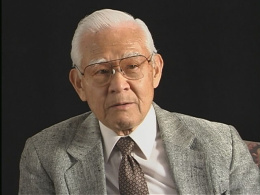 Media
Media
